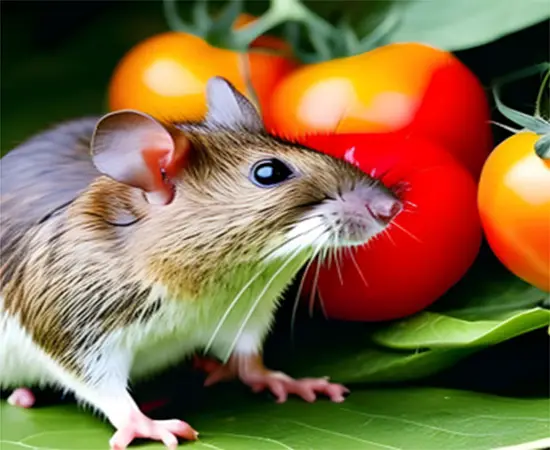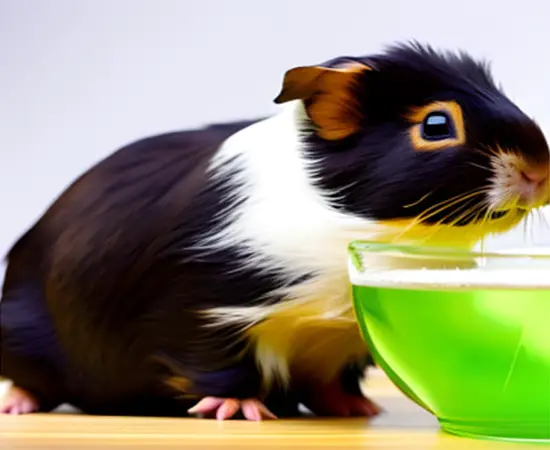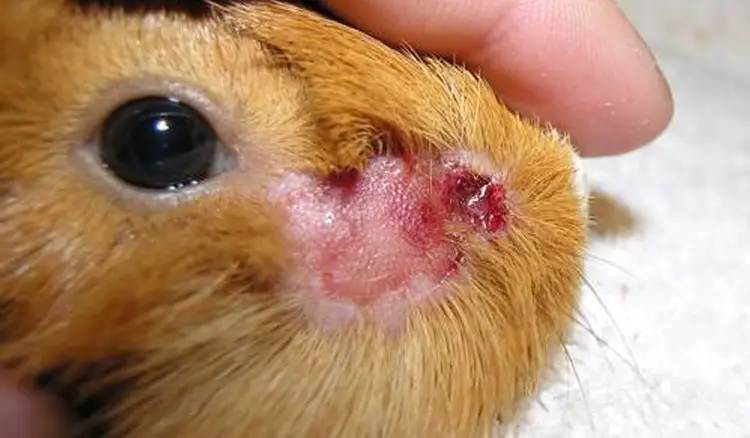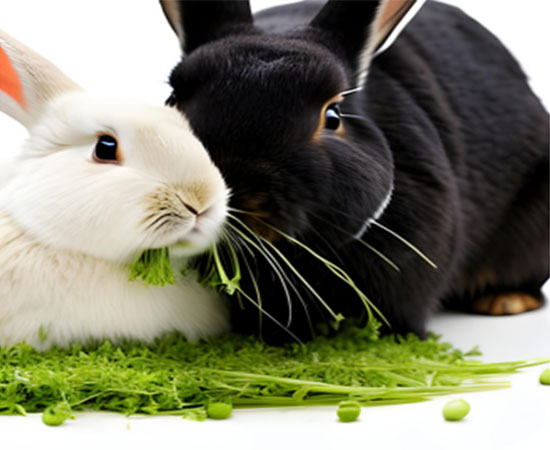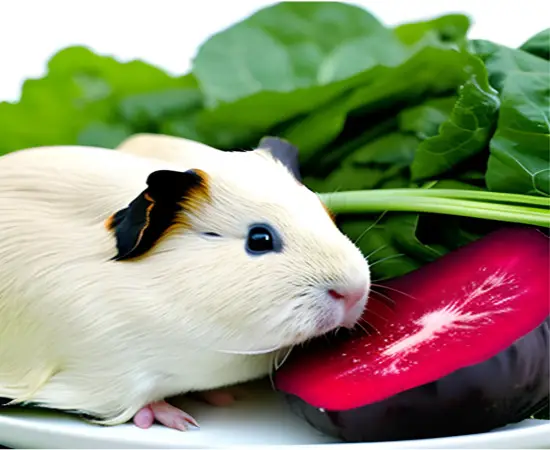Moderate tomato consumption is safe for rats, but beware toxic parts. Discover proper tomato inclusion in rat diets.
When it comes to the culinary preferences of our furry friends, the topic of rats and tomatoes might leave you pondering whether these rodents can indulge in this juicy red fruit. Rats are known for their diverse eating habits, but can they safely munch on tomatoes? The answer, as with many things in the animal kingdom, is not a simple yes or no. While rats can indeed consume tomatoes, there are crucial factors to consider to ensure the well-being of these creatures.
The Tomato Tango: Rats and Tomatoes Explained
Rat Diet Diversity: Omnivorous Appetites
Rats are opportunistic omnivores, which means their diet encompasses a wide range of foods, including plant matter and animal protein. This dietary flexibility has allowed them to thrive in various environments around the world.
The Tomato Temptation: Are Tomatoes Safe for Rats?
Yes, rats can eat tomatoes, but with some caveats. The flesh of ripe tomatoes is generally safe for rats to consume in moderation. Tomatoes are a source of essential nutrients like vitamins A and C, as well as antioxidants. However, the tomato plant also contains potentially harmful compounds that can pose risks to rats.
Navigating the Tomato Terrain: What Rats Can and Cannot Eat
Tomato Treats: Safe Parts for Rats
Rats can safely enjoy the ripe flesh of tomatoes, reaping the nutritional benefits they offer. These juicy portions provide a refreshing snack and can be a valuable addition to a rat’s diet.
The Thorny Issue: Toxic Components
While the flesh of tomatoes is generally safe, other parts of the tomato plant should be strictly avoided. The leaves, stems, and green, unripe tomatoes contain a substance called tomatine, which can be toxic to rats and may lead to gastrointestinal distress.
Balancing Act: Incorporating Tomatoes into a Rat’s Diet
Portion Control: Moderation Matters
As with any addition to a rat’s diet, moderation is key. Introducing tomatoes as an occasional treat rather than a staple food ensures that rats receive the nutritional benefits without exposing them to potential toxins.
Nutritional Bonanza: What Tomatoes Bring to the Table
Rats can benefit from the nutrients found in ripe tomatoes, including vitamins A and C, which support immune health, vision, and overall well-being. The antioxidants present in tomatoes also contribute to the rats’ antioxidant defense system.
Tomato Talk: Answering Common Queries
Can Rats Eat Cherry Tomatoes?
Yes, rats can consume cherry tomatoes, but the same rules of moderation and avoiding toxic parts apply. Ensure the tomatoes are ripe and remove any stems or leaves before offering them to rats.
Are Cooked Tomatoes Safe for Rats?
Cooked tomatoes are generally safe for rats to eat, but they should be prepared without additives like salt or spices. However, cooked tomatoes may lose some of their nutritional value compared to fresh ones.
Can Rats Eat Tomato Sauce?
Feeding rats tomato sauce is not recommended. Most commercial tomato sauces contain additives, salt, and seasonings that can be harmful to rats. Stick to offering fresh, ripe tomato pieces.
Rat Diet Do’s and Don’ts: A Quick Guide
Do’s
- Offer small, ripe tomato pieces as an occasional treat.
- Remove all stems, leaves, and unripe tomatoes before feeding.
- Ensure tomatoes are thoroughly washed to remove any pesticides.
Don’ts
- Avoid giving rats tomato leaves, stems, or unripe tomatoes.
- Stay away from tomato products like sauces that may contain harmful additives.
Beyond Tomatoes: Exploring Rat Nutrition
Rat Diet Basics
In addition to tomatoes, rats thrive on a balanced diet that includes:
- Fresh vegetables: Dark leafy greens, carrots, and bell peppers.
- Fruits: Apples, berries, and bananas.
- Protein sources: Lean meats, cooked eggs, and small amounts of dairy.
Hydration Matters: Providing Fresh Water
Like all living creatures, rats require access to clean, fresh water at all times. Make sure to provide a stable source of hydration to support their overall health.
Tailoring Rat Diets: Individual Considerations
Rat Age and Health
Young rats, pregnant or nursing rats, and older rats may have specific dietary needs. Consult with a veterinarian to ensure the diet meets the nutritional requirements of your rats.
Allergies and Sensitivities
Just like humans, rats can have allergies or sensitivities to certain foods. Watch for any adverse reactions when introducing new items, including tomatoes, to their diet.
Frequently Asked Questions
Can rats eat tomato seeds?
While the flesh of ripe tomatoes is generally safe for rats, it’s advisable to remove the seeds before offering them to your furry friends. Tomato seeds, although not highly toxic, contain small amounts of compounds like solanine which, in excess, could potentially be harmful to rats’ digestive systems. To err on the side of caution, it’s best to avoid the seeds and provide seedless tomato pieces.
What should I do if my rat accidentally consumes tomato leaves?
If you suspect that your rat has ingested tomato leaves, it’s important to monitor their behavior closely. Tomato leaves contain tomatine, a glycoalkaloid that can be toxic to rats in larger quantities. If you notice any signs of gastrointestinal distress such as vomiting or diarrhea, it’s recommended to contact a veterinarian immediately. In most cases, small accidental consumption may not lead to severe harm, but it’s always better to seek professional advice.
Can rats eat canned tomatoes or tomato products?
Canned tomatoes and tomato products, such as sauces and pastes, are generally not recommended for rats. These products often contain added salt, sugar, spices, and preservatives that can be detrimental to rat health. Fresh, ripe tomatoes are a safer and healthier option for your furry companions.
How often can I feed tomatoes to my rats?
Tomatoes should be considered an occasional treat in a rat’s diet. Aim to offer small, ripe tomato pieces no more than a couple of times a week. Variety is key to a balanced diet for rats, so ensure that tomatoes are just a part of their overall nutritional intake.
Are there other fruits and vegetables I can offer to my rats?
Absolutely! Rats can enjoy a variety of fruits and vegetables. Some safe options include carrots, bell peppers, dark leafy greens (such as spinach and kale), apples (without seeds), berries, and bananas. Remember to introduce new foods gradually and monitor your rats’ reactions to ensure they tolerate them well.
The Bottom Line
In the grand culinary tale of rats and tomatoes, the verdict leans toward cautious inclusion. Rats can indeed nibble on ripe tomato flesh, savoring the nutrients it offers. However, prudence is essential. By avoiding the toxic components found in other parts of the tomato plant and adhering to moderation, you can treat your rat companions to the occasional tomato treat without compromising their health.
Remember, each rat is a unique individual, and consulting with a veterinarian before making significant changes to their diet is always a wise step. With the right approach, you can strike a balance between delightful indulgence and responsible pet care in the world of rats and tomatoes.

